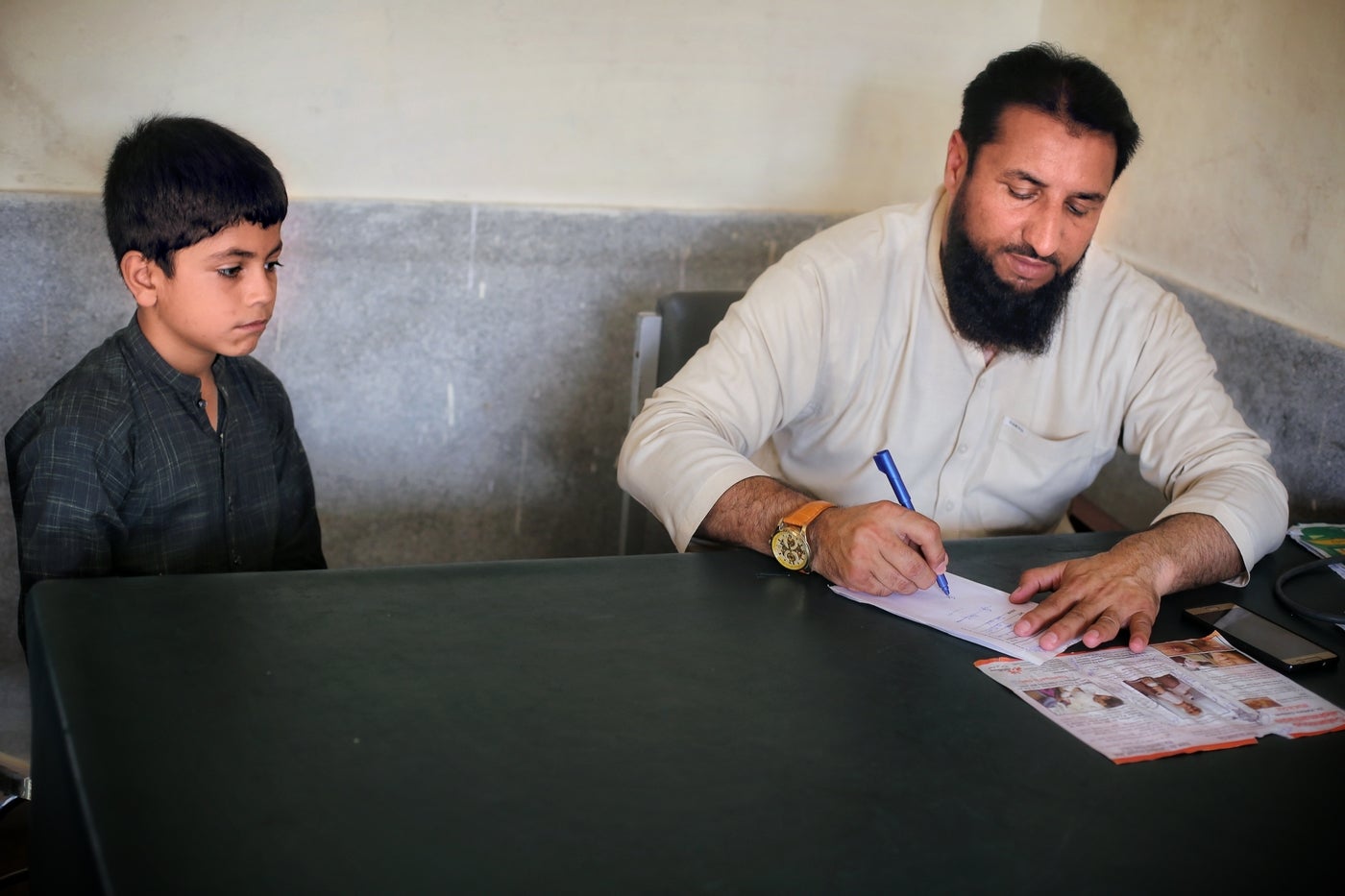 Registration at Community Support Project immunization center
Registration at Community Support Project immunization center
Dr. Sohail Afridi has been working diligently since his appointment as the medical officer nine months ago at the only basic health unit serving Maryamzai, a rural neighborhood located on the fringe of Peshawar City. On a hot summer day, while administering the measles vaccine to the children, Dr. Sohail and his team have to work without electricity, making service delivery even more challenging in this bustling yet impoverished area.
“My team includes male and female health care providers serving more than 40 patients on a daily basis for minor surgeries, medical check-ups, and immunization campaigns. However, our health facility requires a major upgrade to help improve the quality of services. We also need a permanent solution to our electricity woes. We have been working without electricity for the last four months due to a bad transformer,” the doctor says.
The Pakistan Community Support Project (CSP) uses a community-driven development approach so that communities can actively participate & receive socioeconomic benefits
The rehabilitation of the health unit and the conversion of the main power supply to solar are among the local development schemes under the Pakistan Community Support Project (CSP) , supported by the World Bank with funding from the Pakistan Multi-Donor Trust Fund.
The CSP aims to improve access to local infrastructure and basic services while strengthening citizen engagement in the project’s three target districts of Khyber Pakhtunkhwa Province: Khyber, Peshawar, and Nowshera. The project has been designed and implemented using a community-driven development approach so that communities can actively participate and receive socioeconomic benefits.
CSP works with local communities to form community development councils that identify local development needs in a participatory manner, including with the participation of women and youth
The project works with local communities to form community development councils that identify local development needs in a participatory manner, including with the participation of women and youth. Communities then receive infrastructure grants and technical assistance from the CSP team in the Sustainable Development Unit of the Planning and Development Department to plan and oversee the construction, operation and maintenance of local development schemes. All project activities are carried out in coordination with provincial and local government authorities to ensure the long-term sustainability of community investments.

“The roads used for commuting within the village and to nearby areas are broken. The assistance extended to us by the project has been a blessing,” says Muhammad Hanif, a young teacher at a primary school in Muslimabad village in the rural part of Nowshera. The condition of the roads and pavement in this sparsely populated village is quite poor, limiting access to markets and other basic services. Unemployment is a major issue with more than 80 percent of the working population in this locality working in brick kilns.
Muslimabad has organized its community development council, prepared a community development plan, and conducted assessments and civil works plans to pave 15 streets across the village. Community members believe that the project will improve connectivity, road safety, and the cleanliness of their village. It will also offer employment during the construction, as well as reduce travel time to other economic opportunities around the village.
As communities implement local schemes, their confidence in their ability to take charge of local development is going to grow
Beyond the local impacts of community schemes, the citizen-centric approach of the CSP is expected to contribute to a new development paradigm in Khyber Pakhtunkhwa. The provincial government has recently been empowering local councils to take part in local development processes. In that context, CSP is considered a model to demonstrate the promise of the community-driven development approach and can provide a solid operational foundation for future programs.
As communities implement local schemes, their confidence in their ability to take charge of local development is going to grow. As put by Muhammad Hanif from Muslimabad, “Thanks to the project, we are now more determined than ever to contribute positively to the lives and livelihoods of our people.”



Join the Conversation